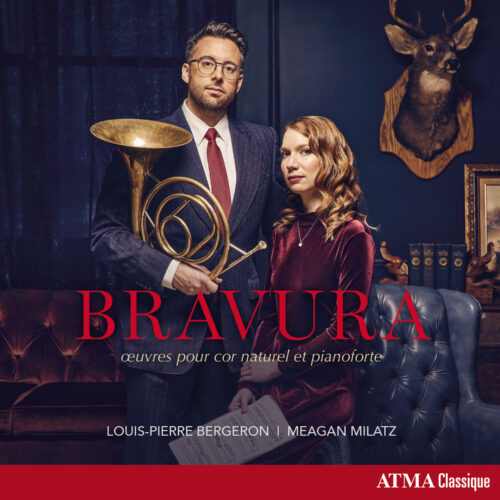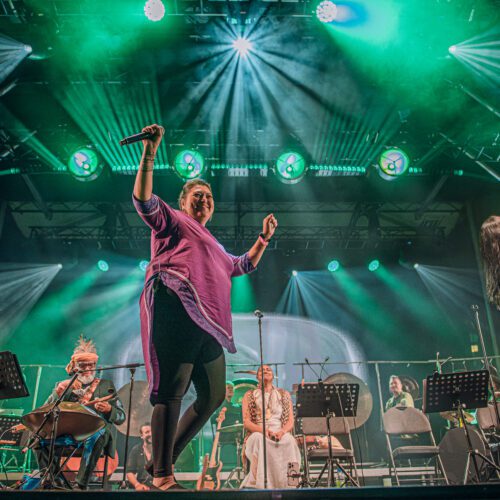There’s a kind of alignment of the sound stars between the slightly rough texture of the natural horn (an instrument without valves, unlike its modern avatar, where everything is played solely with the pressure of the lips and the placement of the hand in the bell) and the sour texture of the pianoforte (predecessor of the modern piano). Count on Quebec horn player Louis-Pierre Bergeron, however, to create lines that are ample, sovereign and, despite everything, mellow in their sound projection. Although the instrument of Meagan Milatz (a recent McGill graduate) is captured a little too remotely, it offers a nimble, precise accompaniment in support of the soloist.
The choice of repertoire is sure to delight the curious, for, starting with Beethoven’s Sonata for horn and piano in F major, Op. 17, Bergeron leads us to discover a whole repertoire that is fairly forgotten but reveals some unsuspected treasures.
Righini’s dashing Duo for horn and piano in D major, dated “around 1780”, may well prove to be the first recognized work for horn and piano in history. This is followed by Cipriani Potter’s Sonata di bravura for horn and piano in E flat major, Op. 13, the latest work on the program. It’s a work that impresses not only with its wide range of shared emotions but also with several passages that employ techniques unique to the instrument, such as the exchanges between filtered and open sounds in the central movement. The heroic finale gives this sonata a fully appropriate personality.
A Mouvement de sonate for horn and piano in E-flat major (left unfinished) by Franz Süssmayr (Mozart’s friend and collaborator) brings a healthy dose of Viennese sparkle to the ensemble. While the style and affects of this work are regularly brought back to Mozart’s Concerto K 412, Süssmayer nevertheless knows how to preserve his own voice, turning this piece into a declamatory exercise in ostentatious bravura.
Nikolaus Freiherr von Krufft may be an illustrious unknown, but his Sonata for horn and piano in E major, dating from 1814, enjoys a certain renown in the small world of horn players, having already been recorded by Hermann Baumann, among others. I haven’t heard Baumann’s version, but the one presented here by Bergeron certainly has nothing to envy. The Quebecois is quite impressive in his rendering of the many virtuoso lines and disparate sound effects demanded by Krufft. This sonata, full of wit and beautiful melodic phrases, will be a memorable discovery for many. The Andante espressivo is particularly touching and poetic. A great page in chamber music for all instruments.
The album’s main course, Beethoven’s Sonata for horn and piano in F major, Op. 17, also intended for the cello (a better-selling instrument for publishers at the time), is a work of the composer’s relative youth, but which nonetheless testifies to an already highly personal character. The piece makes good use of the instrument’s low notes, and Bergeron gives them an assertive resonance. The soloist’s mastery of arpeggios also adds a pleasing hint of optimism to this sonata, a cornerstone of the French horn repertoire. The use of the natural horn (accompanied by the pianoforte) places this all-Quebec version in a category of its own, and gives it a very authentic character, compared with other great readings by well-established horn players, most of whom use modern instruments.
























